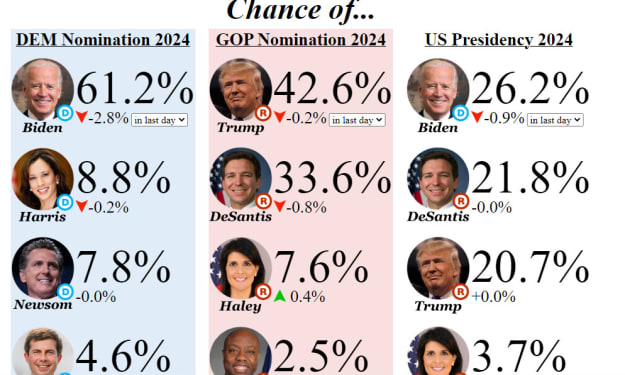The Historical Interactions Between Britain and the Ashanti Kingdom in the 18th Century
Trade, Conflict, and Cultural Exchange: Unraveling the Complex Relationship between Britain and the Ashanti Kingdom in the 18th Century

The 18th century witnessed significant interactions between Britain and the Ashanti Kingdom, a powerful West African empire located in present-day Ghana. This period marked the emergence of British colonial interests in Africa, as well as the Ashanti Kingdom's attempts to protect its sovereignty and expand its influence. The relationship between these two entities was characterized by a complex interplay of trade, diplomacy, conflict, and cultural exchange. This article aims to explore the history of their interactions throughout the 18th century, shedding light on the key events, motivations, and outcomes that shaped their relationship.
Before delving into the 18th century, it is important to understand the historical context that preceded Britain's arrival in the region. The Ashanti Kingdom, also known as the Asante Empire, had its origins in the late 17th century when a group of Akan-speaking people led by Osei Tutu I unified various Akan states into a centralized polity. The kingdom quickly expanded its influence through military conquests, establishing control over vast territories and becoming a major power in West Africa.
Britain's initial interactions with the Ashanti Kingdom were driven by the pursuit of trade opportunities. British traders from the Royal African Company established coastal forts along the Gold Coast (present-day Ghana) to facilitate trade in gold, ivory, and other valuable commodities. These forts, such as Cape Coast Castle and Elmina Castle, served as bases for British merchants and as centers of exchange between European and African traders.
Throughout the 18th century, British traders sought to expand their presence inland and forge alliances with local African powers, including the Ashanti Kingdom. The Ashanti, aware of the economic benefits of trade with the Europeans, welcomed these exchanges and established diplomatic relations with the British. Both sides recognized the advantages of cooperation in terms of access to goods, technology, and military support.
The Ashanti Kingdom maintained a lucrative monopoly over the trade in gold and other commodities, allowing them to accumulate wealth and establish themselves as a dominant force in the region. However, the presence of European traders and their increasing influence posed a challenge to Ashanti authority. The British, on the other hand, were keen on expanding their control over trade routes and increasing their profits. This led to occasional tensions and conflicts between the two powers.
The 18th century witnessed several military engagements between the Ashanti Kingdom and the British, fueled by a combination of territorial disputes, economic interests, and attempts to maintain power. The Ashanti, with their formidable military organization and advanced weaponry, posed a significant challenge to British ambitions in the region.
One notable conflict during this period was the War of the Golden Stool in 1900. The British Governor of the Gold Coast, Frederick Hodgson, demanded the Ashanti King Prempeh I surrender the Golden Stool, a sacred symbol of Ashanti unity and sovereignty. This demand led to widespread resistance and armed conflict, as the Ashanti fiercely defended their independence against British encroachment.
The war resulted in a temporary British victory, with the Ashanti Kingdom being incorporated into the British Gold Coast colony. However, Ashanti resistance and revolts persisted in the following years, highlighting the resilience and determination of the Ashanti people to reclaim their sovereignty.
Despite the conflicts and tensions, the interactions between the Ashanti Kingdom and Britain also facilitated cultural exchange and the spread of ideas. British traders and missionaries brought Western education, Christianity, and new technologies to the region, which had a profound impact on Ashanti society.
The Ashanti, in turn, influenced the British through their rich cultural heritage, art, and political organization. Ashanti goldwork, including intricate jewelry and royal regalia, became highly sought after by the British. The Ashanti political system, characterized by a hierarchical structure and a centralized authority, also intrigued British colonial administrators, who often sought to understand and adopt aspects of it.
The interactions between Britain and the Ashanti Kingdom during the 18th century left a lasting impact on both parties. For the Ashanti, these encounters challenged their sovereignty and resulted in periods of subjugation under British colonial rule. However, the Ashanti maintained their cultural identity and fought for their independence in subsequent years.
For the British, their encounters with the Ashanti and other African powers shaped their understanding of African societies and influenced their colonial policies. The Ashanti resistance and the resilience demonstrated during conflicts also played a role in shaping the British perception of African military capabilities.
Overall, the history of interactions between Britain and the Ashanti Kingdom during the 18th century is a complex tale of trade, diplomacy, conflict, and cultural exchange. It highlights the tensions and power struggles that arose from European colonial ambitions and African efforts to maintain independence and protect their interests. The legacy of these interactions continues to influence the relationship between Ghana (the modern successor of the Ashanti Kingdom) and the United Kingdom today.
About the Creator
Enjoyed the story? Support the Creator.
Subscribe for free to receive all their stories in your feed. You could also pledge your support or give them a one-off tip, letting them know you appreciate their work.





Comments
There are no comments for this story
Be the first to respond and start the conversation.